“If it’s not safe, it’s not food.” – These were the words spoken by Dr Markus Lipp, of the The Food and Agriculture Organisation of the United Nations (FAO) at a June 7 panel discussion for World Food Safety Day in Trinidad and Tobago.
This remark may seem like a truism, appearing self-evident on the surface but when you consider the reality that almost one-quarter of the world’s population struggles to eat “safe nutritious and sufficient food”, you come to understand just how alarming its implications truly are.
Locally, Minister of Agriculture Land and Fisheries, Clarence Rambharat, classifies two types of unsafe food that plague the market. The first, he defines as food products that are inherently unsafe due to extreme levels of salts, sugars and fats.
The second type he describes as food that was produced safely before becoming unfit for consumption through contamination or decomposition.
To help you protect yourself and your family from both types of unsafe food, The Cropper Foundation has teamed up with local stakeholders in food safety to launch a national public awareness campaign on the topic of food safety.
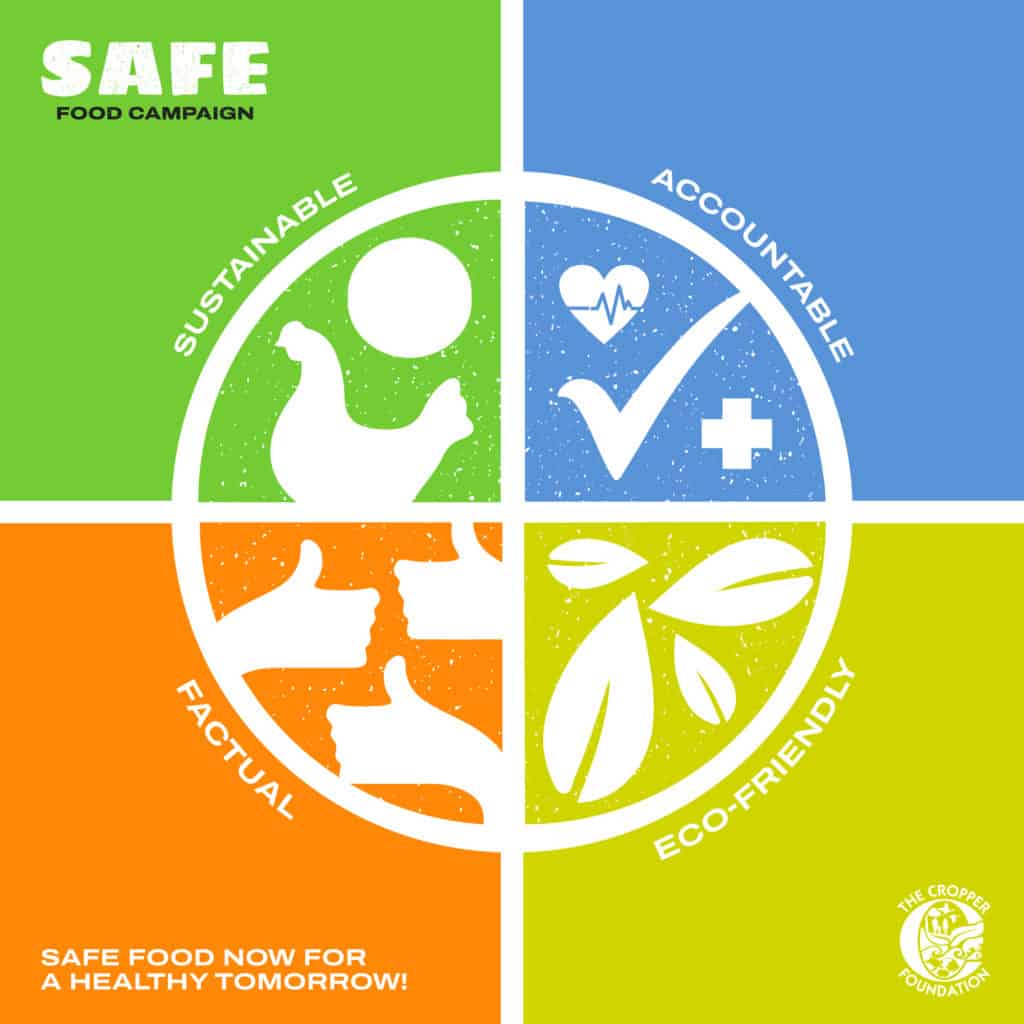
SAFE Food Campaign
This article, represents the first in a series of 12 which will offer practical advice to consumers that frequent markets and grocery stores in Trinidad and Tobago.
To kick things off, we we want you to get familiar with the theme of the campaign which explains food safety through the lens of the acronym – S.A.F.E.
[Sustainable | Accountable | Factual | Eco-Friendly]
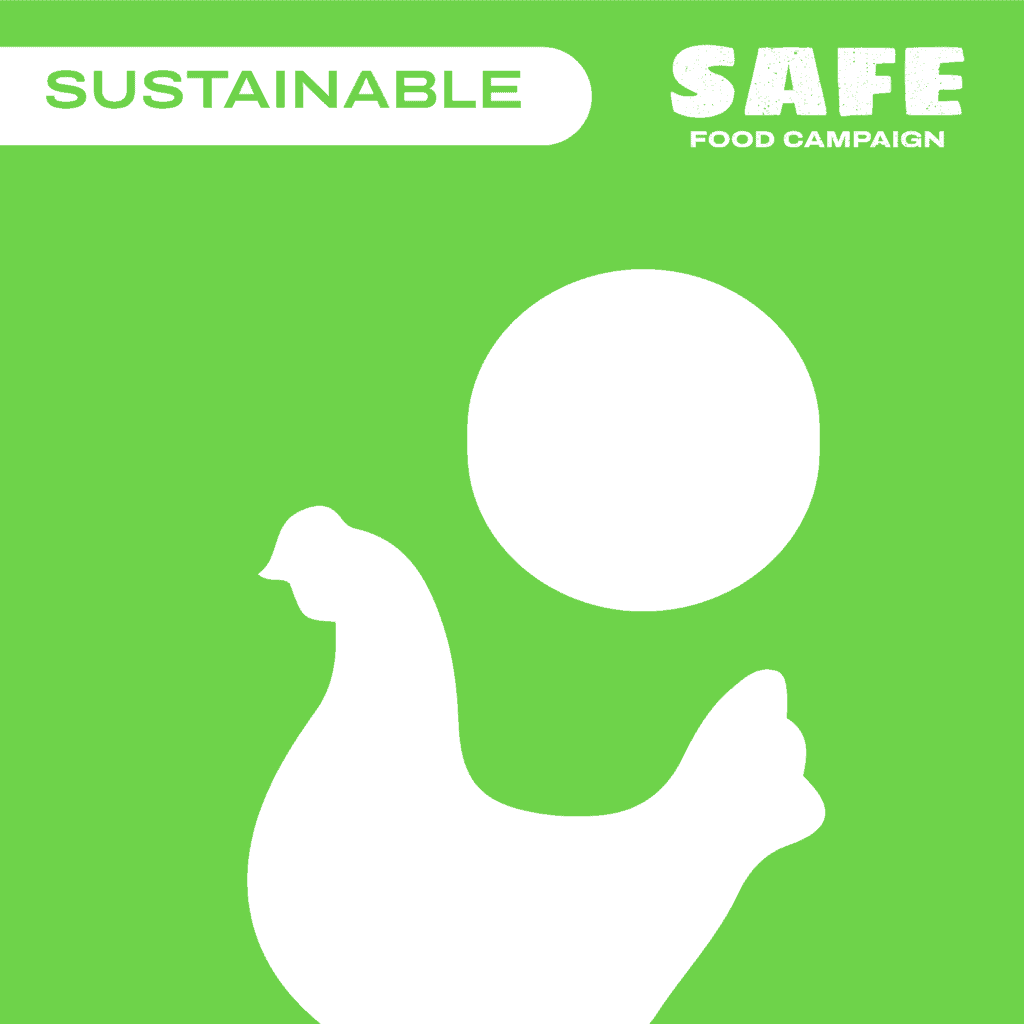
With each purchase, we want you, the consumer, to consider how the production of your food affects the environment. This may seem counter-intuitive at first in a conversation about food safety and its impact on human health. However, environmental degradation caused by unsustainable farming practices is already negatively impacting the health of people all around the world.
A farmer that doesn’t consider sustainability in their approach may use pesticides that kill key pollinators, seep into the water table, and leave invisible residue on fruits and vegetables in an attempt to create a deceptively pleasing appearance for unsuspecting consumers like you. The constant use of artificial chemicals also reduces the ability of the soil to remain nutritious over time, resulting in the need to use more and more artificial inputs as time goes on.
There is a better approach – It’s called climate-smart agriculture. Farmers who adopt this style of farming, avoid harmful practices such as monoculture and are careful not to use unsafe chemical inputs.
When you support these farmers, you support clean air to breathe, clean water to drink and safe food to eat. Together with our partners at Inter-American Institute for Cooperation on Agriculture (IICA), we’ll be sharing more detailed advice about how you can support climate-smart agriculture as this campaign continues.
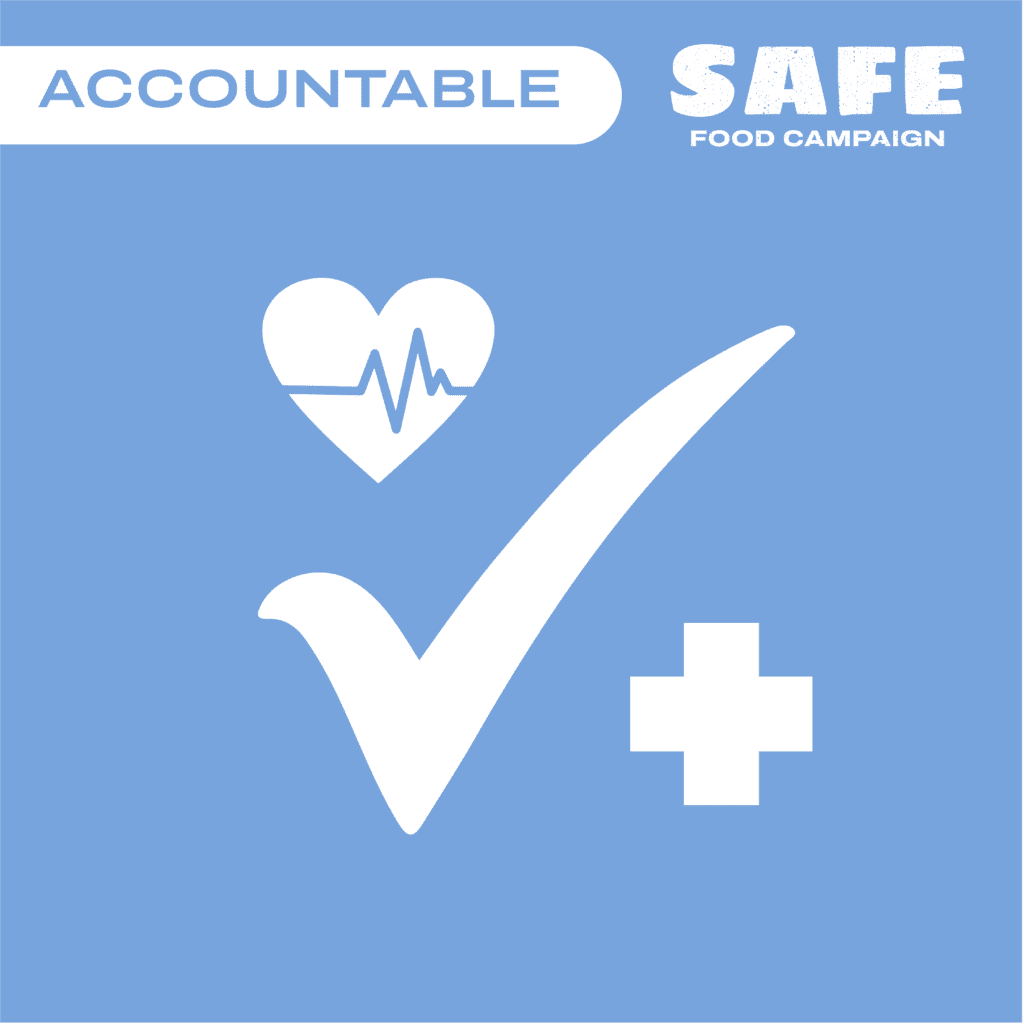
You the consumer are entitled to ask questions about how the products you purchase at the grocery store and market get produced. All levels of the supply chain are accountable to you! Your health matters and you need to know what types of questions to ask.
Many in Trinidad and Tobago are calling for the introduction of food traceability systems and certifications that can verify whether or not a product is meeting an acceptable standard. In the interim, you the consumer must feel empowered to ask the right questions about pesticide usage, farm of origin and other matters of consequence.
Where was this grown?; What system was used to grow this produce? What do you mean by “organic”? – If you’re equipped with the knowledge to know what the answers to these questions should be, you significantly increaseyour chances of avoiding unsafe food products. And in the event that you do consume something unsafe, you’ll be more likely to know who should be held accountable and how.
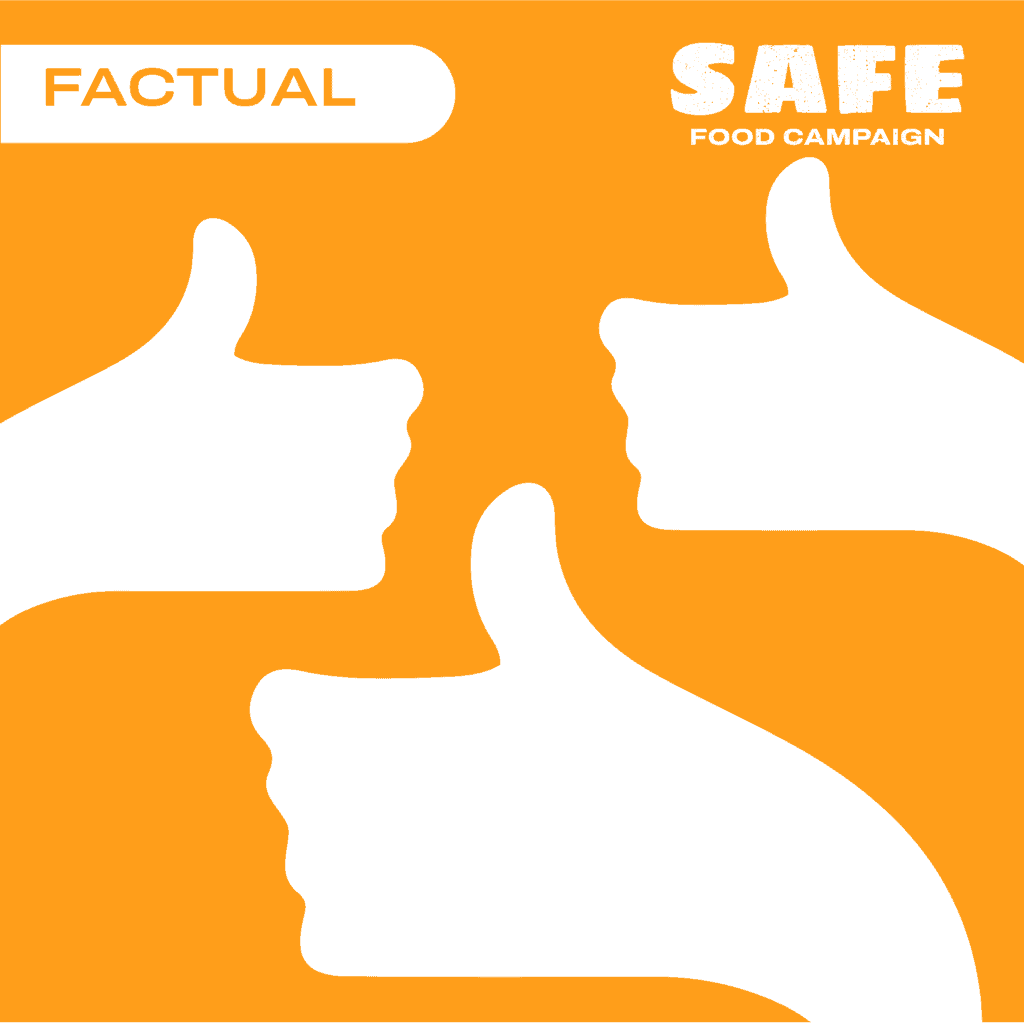
Before launching this campaign, The Cropper Foundation conducted a national online survey which revealed that the number one method used by consumers for verifying food safety was “checking food labels and certifications”.
In order for this method to be effective, consumers need to be aware of what exactly they should be looking for on food labels. They also need to know about certifications that exist locally and whether or not they are recognised by the government of Trinidad and Tobago and trusted by international institutions.
The Chemistry Food and Drug Division as part of the in the Ministry of Health advises the Minister of Health through a Food Advisary Committee on the setting of food standards, labelling and other matters connected with the manufacturing and distribution of food.
Under this campaign, representatives from this department will be sharing advice to consumers on how they can more effectively read and understand local labels and certifications.
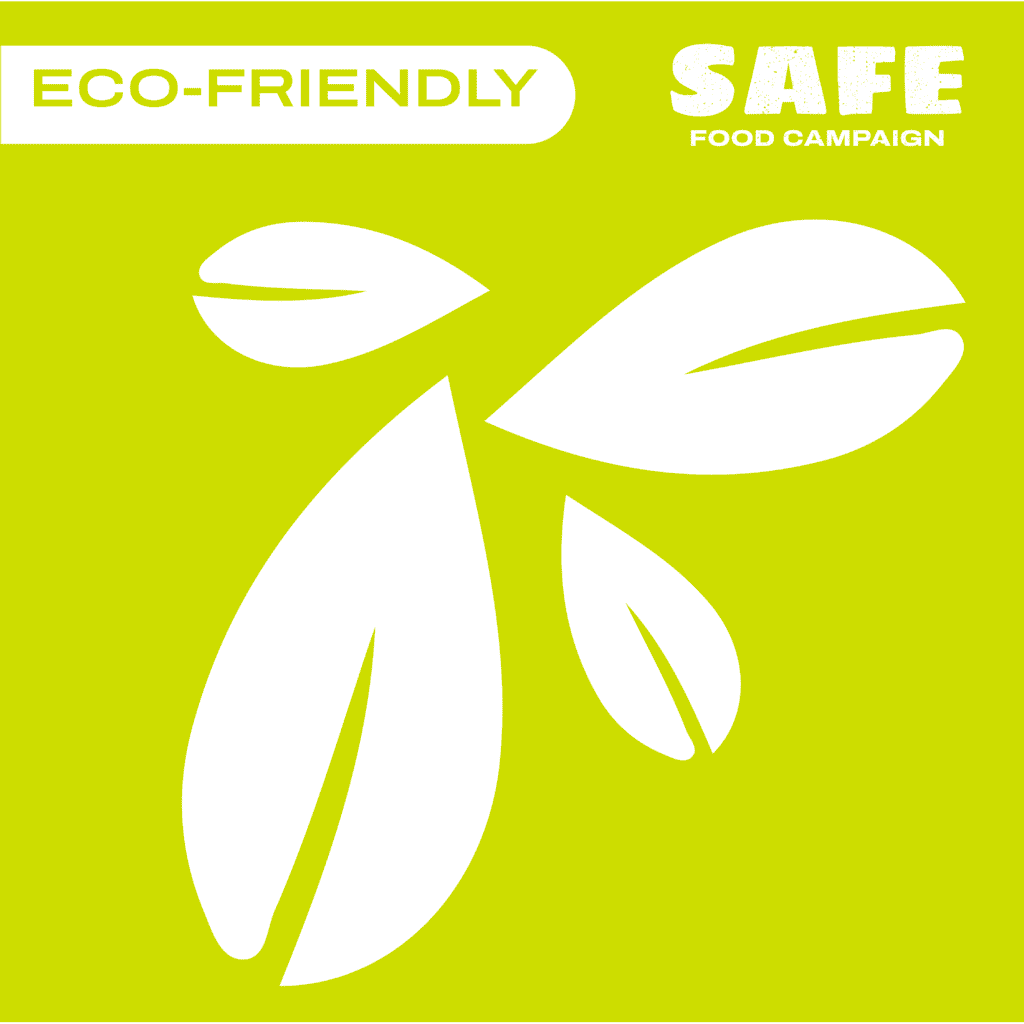
Within recent years, the increased awareness of the environmental impacts of plastic waste has resulted in a demand by consumers for more environmentally sustainable alternatives. This has led to pressure on many governments around the world to implement policies and initiatives that favour the three R’s: Reduce, Reuse, and Recycle.
Many businesses within the food packaging industry have attempted to join the emerging anti-plastics movement by introducing different types of eco-friendly products. However, with a lack of industrial regulation and knowledge, consumers are falling prey to misleading marketing tactics, which in some cases, are resulting in more harm than good.
That’s why this campaign will highlight ways that you can protect yourself against greenwashing or deceptive green marketing by the local food packaging industry. Campaign stakeholders at the Trinidad and Tobago Bureau of Standards (TTBS) will be giving direct advise on this matter.
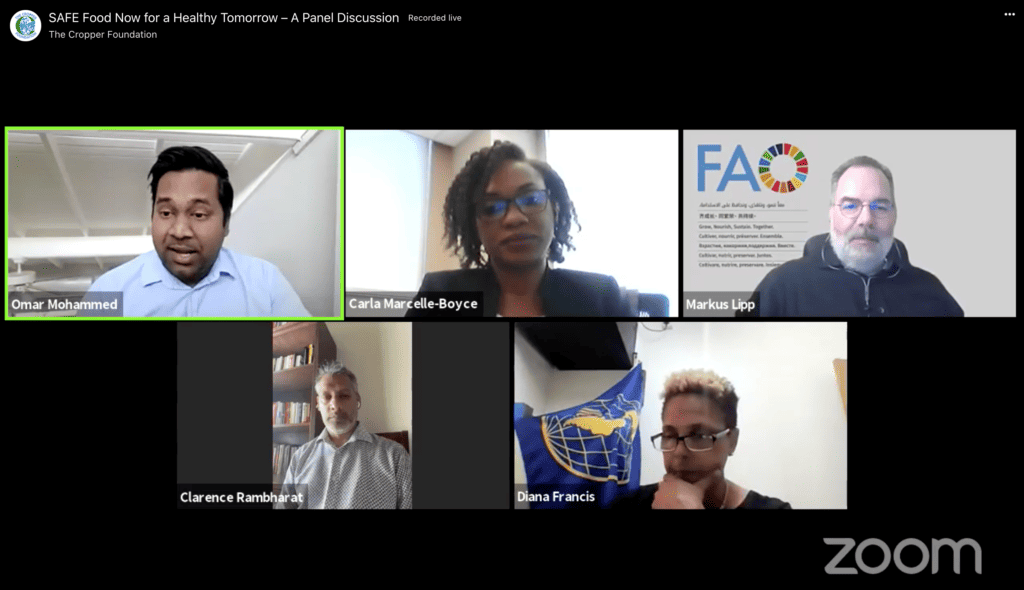
Consumers generally buy with their eyes. It is our hope that by the end of this campaign, more consumers will feel empowered with the necessary knowledge to help them think beyond appearances.
Over the course of the next three months, you can look out for more editorials on Cari-Bois News and webinars on The Cropper Foundation’s social media pages. You can also get more involved in the campaign by participating in our SAFE Food Challenge where up to $10,000 TTD in prizes stand to be won creating food safety public awareness videos.
The Safe Food Campaign is a collaborative effort by The Cropper Foundation, The Food and Agriculture Organisation of the United Nations (FAO), National Food Safety Coordinating Committee, The National Agricultural Marketing and Development Corporation (NAMDEVCO), Trinidad and Tobago Bureau of Standards (TTBS), Inter-American Institute for Cooperation on Agriculture (IICA), and The Caribbean Industrial Research Institute (CARIRI).
The initiative is being supported by IDB Lab funding under the project “Making Agriculture Profitable and Sustainable”.





